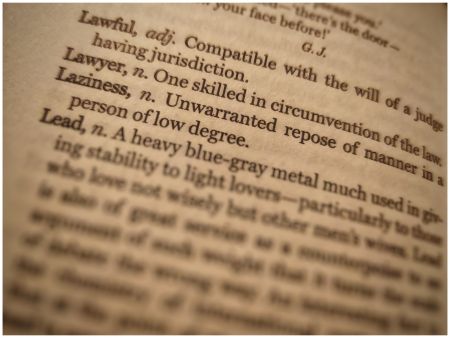Pedantry: Difference between revisions
Jump to navigation
Jump to search
Amwelladmin (talk | contribs) No edit summary |
Amwelladmin (talk | contribs) No edit summary |
||
| Line 1: | Line 1: | ||
{{def|Pedantry|/ˈpɛdəntri/|n|}} | {{def|Pedantry|/ˈpɛdəntri/|n|}}{{Maxim|If we all removed just one brown brick of pedantry from the road we travel every day, the roads would not be strewn, as they are, with brown bricks of pedantry.}} | ||
1. The resting state — the happy place — of any [[legal eagle]]. <br> | 1. The resting state — the happy place — of any [[legal eagle]]. <br> | ||
2. Courtesy of the [[JC]]’s [[tenth law of worker entropy]]; the [[rule of collective agency]], in which it is understood that all agents must, in the service of a common principal, tolerate each others’ pedantry, the instinctive starting point of any [[agent]] when deciding how to act. | 2. Courtesy of the [[JC]]’s [[tenth law of worker entropy]]; the [[rule of collective agency]], in which it is understood that all agents must, in the service of a common principal, tolerate each others’ pedantry, the instinctive starting point of any [[agent]] when deciding how to act. | ||
Revision as of 14:19, 30 November 2021
|
Pedantry /ˈpɛdəntri/ (n.)
If we all removed just one brown brick of pedantry from the road we travel every day, the roads would not be strewn, as they are, with brown bricks of pedantry.
1. The resting state — the happy place — of any legal eagle.
2. Courtesy of the JC’s tenth law of worker entropy; the rule of collective agency, in which it is understood that all agents must, in the service of a common principal, tolerate each others’ pedantry, the instinctive starting point of any agent when deciding how to act.
See also
- Care horizon
- Laws of worker entropy
- Dilbert’s programme to finally codify pedantry.
